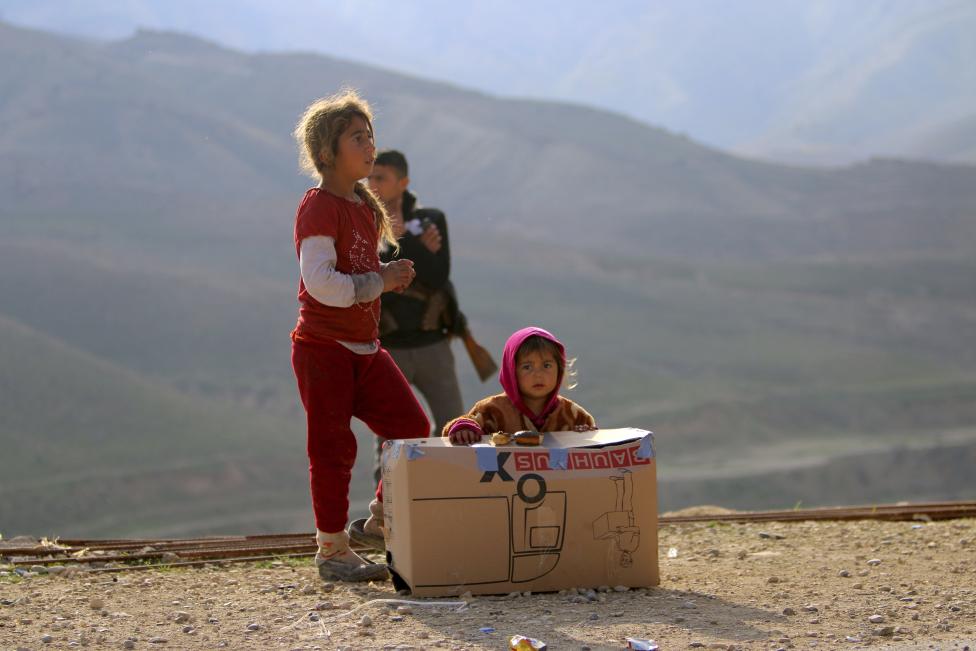
Reuters/stringer
They used to be symbols of an oil-fuelled boom, but the unfinished buildings in Iraq’s Kurdish north are now crammed with people fleeing violence in the rest of the country.
Of the two million people displaced by Islamic State offensives in Iraq this year, almost half sought refuge in Kurdistan, inflating the semi-autonomous region’s population by around 20 percent and putting acute strain on its resources.
The concrete frames of future shopping centers and supermarkets have been wrapped with plastic sheets to shelter their new occupants as winter sets in.
Aid agencies are struggling to provide for the displaced, with the United Nations World Food Programme (WFP) warning on Monday (December 22) that thousands of Iraqis are set to face a very harsh winter, as the humanitarian situation in the country continues to worsen due to violence and insecurity.
The UN agency said around 1600 displaced non-Muslims, mostly from Mosul, live in an unfinished shopping mall in Arbil.
With no walls and with the ground floor filled with water, temperatures drop below freezing at night.
was captured by militants with her family in early November.
She managed to flee with the male members of her family but her daughters are still being held by Islamic States militants.
“A lot of children died from hunger, but that is not as bad as the capturing and raping of our girls. We can stand almost everything that happened in the genocide, but taking away our girls. That is the most painful thing,” Kamila said.
As the number of displaced Iraqis increases due to the ongoing conflict, WFP plans to gradually scale up its food assistance to reach 1.8 million displaced Iraqis per month by March 2015.
At the moment, WFP reaches a maximum of 1.4 million displaced Iraqis per month.
“If they do get out and they are lucky enough to escape the threat that they have been facing at home then they move into these open unfinished buildings or actual camps and there we are able to reach them and provide them with the food that they need to keep warm and continue to live,” said WFP spokeswomanMarwa Awad.
The United Nations has been criticised for its response, which Kurdish officials and smaller aid agencies say has been hampered by bureaucracy and red tape.
The United Nations has raised 29 percent of the $2.23 billion it needs to support displaced people across Iraq until the end of 2015.
Unless more donations emerge, assistance will have to be cut.
The priority is to move those without a roof over their heads into shelter. Beyond that, the future of displaced Iraqis in Kurdistan is uncertain. Kurdish authorities want as many as possible to be housed in camps, but the United Nations says that is not viable.
UNITED NATIONS WORLD FOOD PROGRAMME







